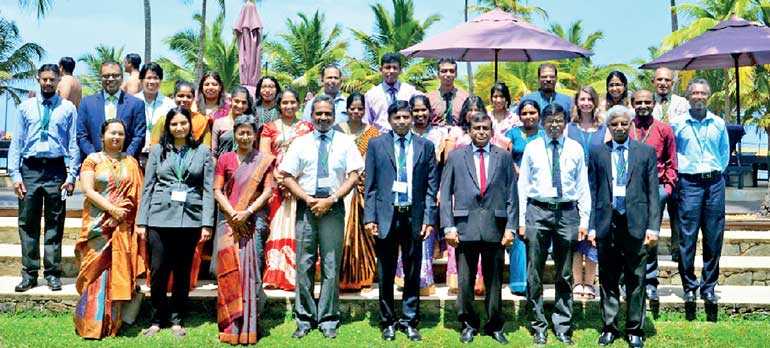Monday Feb 23, 2026
Monday Feb 23, 2026
Friday, 7 September 2018 00:00 - - {{hitsCtrl.values.hits}}
 Climate change and climate uncertainty has increased the demand for climate information products (CIPs) in Sri Lanka, an expert pointed out recently.
Climate change and climate uncertainty has increased the demand for climate information products (CIPs) in Sri Lanka, an expert pointed out recently.
Speaking based on ground level experience, Research Fellow at the Institute of Policy Studies of Sri Lanka (IPS), Dr. Athula Senaratne, noted that there is a clear demand for localised, improved climate forecasts. Sound scientific knowledge and facilities were needed to produce these CIPs, he further explained.
He made these remarks at the Lesson Sharing Workshop on ‘Bridging the Climate Information and Communication Gaps for Effective Adaptation Decisions: An Integrated Climate Information Management System (ICIMS)’, organised by the IPS, in collaboration with Janathakshan and the Department of Meteorology of Sri Lanka (DOM), held on 30-31 August.
ICIMS aimed to combine the strengths of both farmers’ local knowledge and scientifically developed CIPs to enhance farmers’ decisions against climate risks.
The DOM has been providing such forecasts to farmers in selected study sites on a continuous basis, with the field coordination handled by the Janathakshan.
The research project sought to improve the effectiveness of climate adaptation decisions of farmers and policymakers by establishing and pilot-testing models of ICIMS throughout Sri Lanka.
Meanwhile, the Chief Guest of the workshop, Secretary to the Ministry of Agriculture B. Wijayarathne noted that climate change and agriculture are interrelated. He cautioned that in the new reality of climate change, it is important to develop innovative agricultural practices and technologies to face this challenge.
Furthermore, Chair of the National Experts Committee on Climate Change Adaptation, Professor Buddhi Marambe, reiterated that Sri Lanka has been susceptible to climate change in the past and will continue to affect the country in the present and the future. As such, it is important to develop policies and strategies to deal with it.
Echoing his sentiments, Janathakshan CEO Ranga Pallawala highlighted that climate change is the “new normal”. Rectifying the impacts of climate change includes mitigation and adaptation, he further said.
Drawing attention to another challenge facing the agriculture sector, Pallawala pointed out that Sri Lanka’s farming community is getting older, with fewer youth taking up farming as a full-time occupation. Innovation is the key to face this obstacle, he said.
The workshop saw the participation of local and foreign experts, government officials, representatives of community organisations, and farmers.